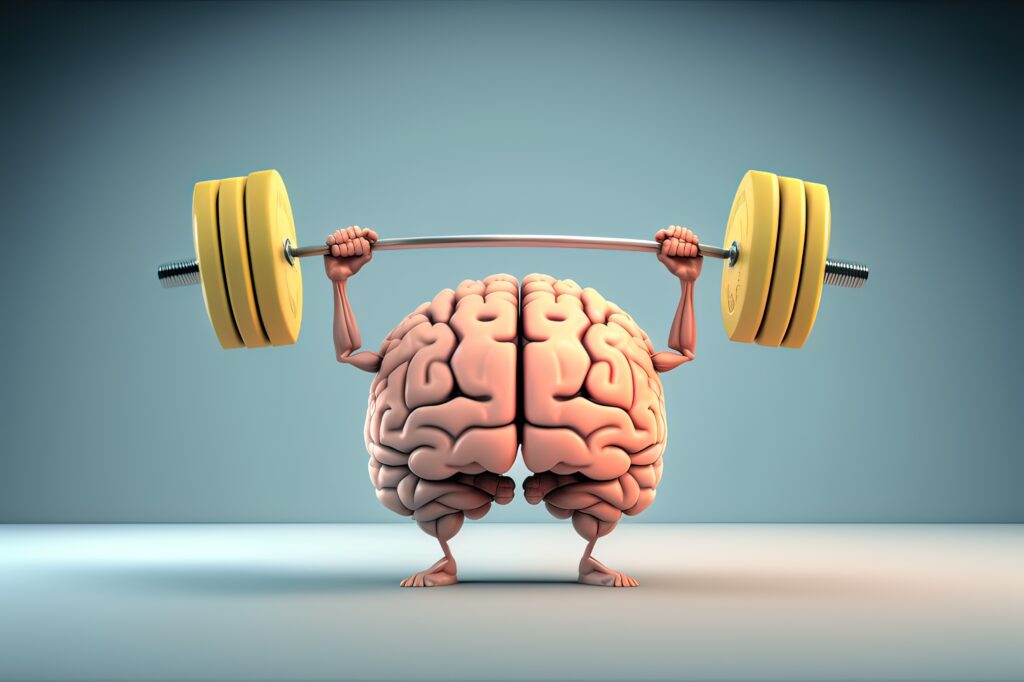

Features
Mental Health
Coaching tips for developing a personalized mental fitness plan for long-term well-being
By Bill Howatt
 Photo: Adobe Stock
Photo: Adobe Stock What is a mental fitness plan? The simple answer is a daily commitment to promote physical and mental well-being. A person must be motivated and have the knowledge and skills to create a personalized mental fitness plan. They must understand why, what, and how such a plan can benefit their long-term physical and mental health.
Motivation is important but seldom enough. Many are motivated to get fit and spend thousands of dollars on gym gear they never use for an extended period. Some quit and fail to develop fitness habits because they focus more on the activity than the desired outcome, which must be a physical fitness habit and an appreciation that it requires consistency and repetition for long-term success.
A personalized mental fitness plan focuses on daily non-negotiable habits and what is done on demand. Developing habits requires education. See Well-being depends on developing healthy physical, mental fitness habits for things to consider when developing physical and mental fitness habits.
I have helped clients develop personalized treatment plans for dealing with mental health concerns for more than 30 years. Every plan focused on developing mental wellness by discovering how to regulate emotions, care for physical health, improve relationships, manage unwanted thoughts, and create positive emotions on demand. The goal was to take care of oneself as part of daily routine.
Adherence to a plan is critical for creating habits that net benefits, and mental state and realistic expectations are crucial when attempting a mental or physical plan. Not all habits are enjoyable. My personal trainer wants me to do 12 reps instead of eight, which I would happily stop at. Habits that matter can be challenging, but there must be benefits to sticking with them. Learning how to develop habits to flourish can help a person live their best life.
You will be ready to build a personalized mental fitness plan when you can confidently state the following:
- “I know why I want to take care of my physical and mental well-being daily.”
- “I know or want to learn how to take care of my physical and mental well-being daily.”
- “I understand how to create habits.”
- “I have supports to hold me accountable and encourage me to push through on days I am not as motivated as I like.”
The next step is to design a plan. Good intentions alone are not enough to create new habits. Building an accountable framework that keeps you on track to learn and practice lifelong habits is helpful. Employers can help employees stick to their mental fitness plans by providing time to practice during work, creating incentives for participation, offering milestone rewards, and encouraging engagement through accountability, challenges, and measurement. They can acknowledge the environment is a factor in the employee experience and create a supportive workplace.
Mental fitness plans change over time
Starting a mental fitness plan with a realistic approach and adopting the motto that less is more can aid adherence. I encourage clients to consider mental health a marathon, not a sprint. Begin by focusing on one area, like physical or emotional well-being.
Aim to develop two activities (micro-skills) you are committed to practicing and converting to habits. Notice what is and is not working and be open to modifying and picking new activities. Consider focus areas of physical health (P), emotional well-being (ES), and quality of authentic connections at work and home (AC).
My mental fitness plan has evolved since the pandemic. Three buckets drive my daily focus, as noted in the following chart. Some daily habits require mental focus and planning; others I do by habit about 90% of the time. I am experimenting with the things in the reinforcement column to see if they move to my non-negotiable daily habit column.
| Mental Fitness Plan | |||||
| Reinforcing requires daily mental focus (experimenting) | Daily habits doing automatically 90% of the time | On-demand | |||
| Six minutes in cold plunge | P | Bed by 10:00 PM to get 8 hours sleep. | P | Deep breathing | P |
| Get out in the morning at first light for 10 minutes | P | Drink 3-4 litres of clean water. | P | Meditation | MH |
| Ground body touching earth | P | Take vitamins and minerals. | P | Psychologist | MH |
| Fasting 16-8 | Daily 5-k walk or work with personal trainer. | Peer support | MH | ||
| Sauna 15 minutes | C | Play with my bulldog Link. | ES | ||
| Deep breathing 3 X 30 reps to maximize oxygen | P | Stay active with my social network. | AC | ||
| Research and review 1 new micro-skill a week. | C | Daily reflection and journaling with a gratitude log. | ES | ||
I log what I do daily, using a simple chart, and acknowledge my plan to keep this on my mental fitness plan for the next day. My daily log drives my accountability to myself to do what I say. If I do not measure what I want to accomplish daily, I lose focus and old habits slip back.
The key to a mental fitness plan is creating habits that benefit. Doing something mindlessly seldom becomes a meaningful habit.
Considerations when creating a personalized mental fitness plan
When developing a personalized mental fitness plan, be clear on the why, what, and how. Note the links among knowledge, skills, activity, practice, and habits. When learning micro-skills and engaging in a targeted activity, be clear on the benefits and value of converting them into habits. This helps create the grit and motivation to spend more time flourishing than languishing. Like using a Stairmaster, you must do something repeatedly to get results.
- Get your flourishing baseline (see Flourishing Quick Survey).
- Pick one or two micro-skills that could positively impact your mental health if you could convert them into habits. For example, good sleep hygiene increases the opportunity to get seven to eight hours of quality sleep, which is needed to maximize your ability to perform to your potential. Think about physical health (exercise, diet, rest, relaxation), emotional well-being (emotional regulation, coping skills), and social connections’ quality (work, home, self).
- Build your mental fitness plan. Use the above chart as a guide. It is OK to start with one thing at a time. Do your work and be detailed when picking a micro-skill or activity. For example, taking a cold plunge is new for me, so I have an accountability partner who also does cold plunges. We record the temperature, time, and duration and report to each other daily. The goal is 10 minutes a day at 50 degrees F. The critical point is to ensure you understand the why, what, and how and the plan to move it towards a habit.
- Measure your progress daily with what you are doing to promote your personalized mental fitness plan. Slow wins the race, so be patient, pick one or two areas you will focus on, and stick with the practice until it becomes a habit. Add new elements to your plan slowly. It’s not a race; it’s about a lifestyle.
- Retest your confidence and flourishing levels every 30 days. Evaluate your accountability and how consistently you stick with your plan and celebrate successes. Accept that being well is not always easy; it’s work with long-term benefits.
 Dr. Bill Howatt is the Ottawa-based president of Howatt HR Consulting.
Dr. Bill Howatt is the Ottawa-based president of Howatt HR Consulting.
Print this page